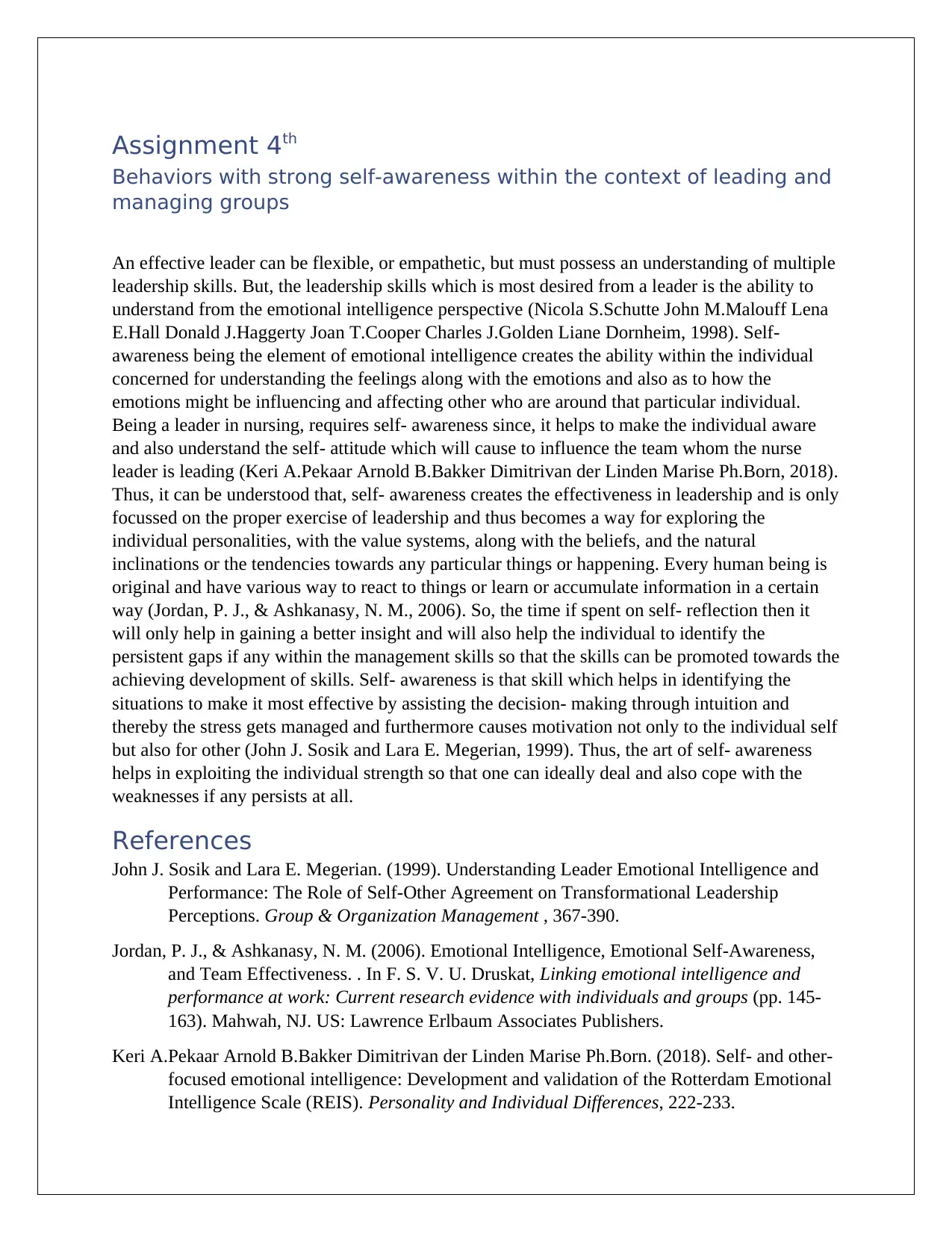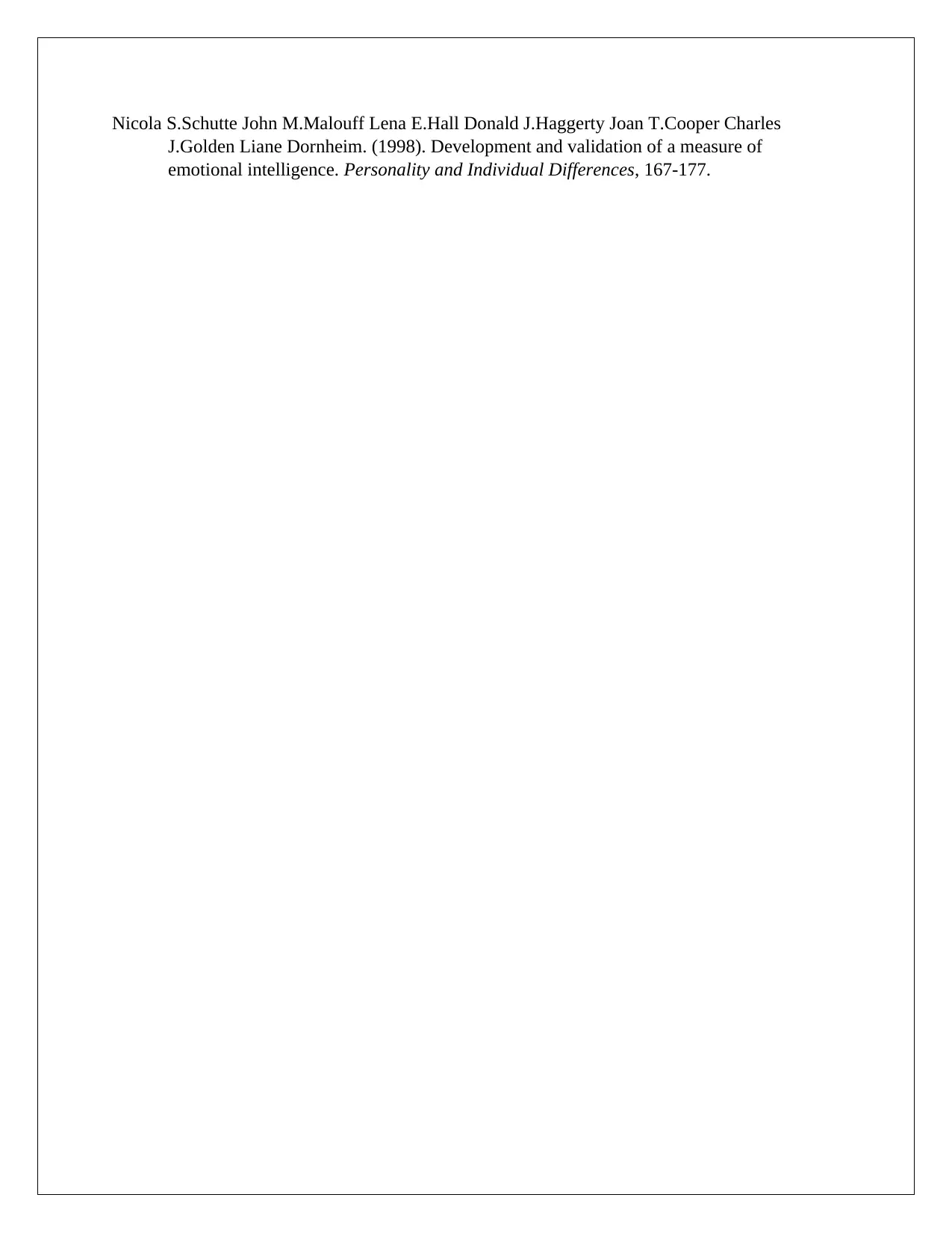Leadership: Self-Awareness and Emotional Intelligence Report
VerifiedAdded on 2019/09/30
|2
|579
|336
Report
AI Summary
This report delves into the critical role of self-awareness and emotional intelligence in effective leadership. It emphasizes the importance of understanding one's own emotions and how they influence others, particularly within a nursing leadership context. The report highlights that self-awareness is fundamental to leadership, enabling better decision-making, stress management, and motivation, ultimately leading to improved team effectiveness. It explores the benefits of self-reflection, identifying individual strengths and weaknesses, and provides references that support the concepts of emotional intelligence and its impact on leadership performance. The report underscores the need for leaders to cultivate self-awareness to enhance their ability to manage and motivate their teams effectively.
1 out of 2


![[object Object]](/_next/static/media/star-bottom.7253800d.svg)